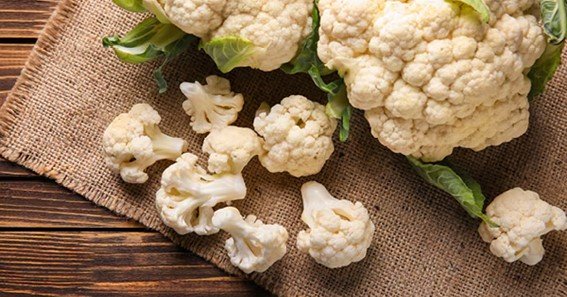Cauliflower is widely appreciated for its versatility in recipes and its impressive nutritional profile. But one question that often arises is, is there vitamin K in cauliflower? Understanding the vitamin K content in cauliflower can help you make informed dietary choices, especially if you’re focused on bone health and nutrient balance. In this article, we’ll explore the nutritional value of cauliflower, its benefits, and how it fits into your daily intake of essential vitamins.
Does Cauliflower Have Vitamin K?
Yes, cauliflower does have vitamin K! While it may not be as rich in vitamin K as some leafy greens, it still provides a valuable amount of this essential nutrient. Vitamin K is important for a variety of bodily functions, including bone health and blood clotting. Adding cauliflower to your meals can contribute to your daily vitamin K intake, especially when combined with other vitamin K-rich vegetables.
Cauliflower and Vitamin K Levels: How Much is There?
The vitamin K content in cauliflower may vary depending on the serving size and preparation method. Typically, one cup of raw cauliflower contains around 16-20 micrograms of vitamin K, which contributes to your daily intake requirement. Although this may seem modest compared to leafy greens like spinach or kale, cauliflower is still a valuable part of a balanced diet that supports overall wellness.
Nutritional Value of Cauliflower
Beyond its vitamin K content, cauliflower is packed with other essential nutrients that benefit your health. Here’s a quick overview of the nutritional value of cauliflower:
- Vitamin C: Supports immune health and skin vitality.
- Fiber: Promotes digestive health and keeps you feeling full.
- Vitamin B6: Important for brain health and energy metabolism.
- Potassium: Helps regulate blood pressure and fluid balance.
- Antioxidants: Protect cells from damage and may reduce inflammation.
Health Benefits of Cauliflower
The health benefits of cauliflower go beyond vitamin K. Including cauliflower in your diet can support various aspects of health:
- Bone Health: Vitamin K in cauliflower, while modest, supports bone density and helps prevent fractures.
- Digestive Health: Cauliflower is high in fiber, which promotes regular digestion and gut health.
- Heart Health: Nutrients like potassium and antioxidants in cauliflower help maintain cardiovascular health.
- Weight Management: Low in calories and high in fiber, cauliflower is an excellent choice for weight-conscious individuals.
- Immune Boost: With a high vitamin C content, cauliflower contributes to a stronger immune system.
Cauliflower for Bone Health
Cauliflower for bone health is a wise choice due to its combination of vitamin K and other minerals. Vitamin K is essential for bone mineralization, helping to maintain bone density and reduce the risk of fractures. When you incorporate cauliflower and other vitamin K in vegetables into your diet, you support long-term skeletal health and overall resilience.
FAQ
1. Is there vitamin K in cauliflower?
- Yes, cauliflower does contain vitamin K. One cup of raw cauliflower provides around 16-20 micrograms of this important vitamin.
2. How much vitamin K should I consume daily?
- The daily recommended intake of vitamin K varies, but generally, adults need about 90-120 micrograms. Cauliflower can contribute to this intake when paired with other vitamin K-rich foods.
3. How does vitamin K in cauliflower support bone health?
- Vitamin K helps maintain bone density and reduces fracture risk, making cauliflower a beneficial addition to a bone-friendly diet.
4. Can I get vitamin K from cooked cauliflower?
- Yes, cooked cauliflower retains much of its vitamin K content, though levels may vary slightly depending on cooking methods.
5. Are there other vegetables with more vitamin K than cauliflower?
- Yes, leafy greens like spinach, kale, and broccoli generally have higher vitamin K levels, but cauliflower is still a valuable and versatile choice for a balanced diet.
In conclusion, is there vitamin K in cauliflower? Absolutely. While it may not be the most vitamin K-dense vegetable, cauliflower provides a moderate amount that contributes to your daily intake. Its wide range of nutrients makes it an excellent addition to meals, supporting bone health, digestion, and overall wellness. Embracing cauliflower and other vitamin K-rich vegetables can enhance the quality of your diet and support your health goals.










